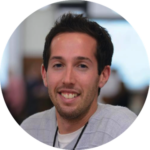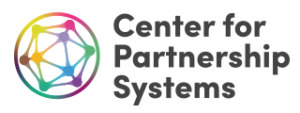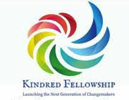March 18, 2021
By David Metler
 Confucius once said that “We have two lives, and the second one begins when we realize we only have one.” I am convinced that social justice education has two awareness deepening life cycle journeys. The first begins when you connect your personal experience to a systemic level and the second one begins when you realize social justice begins at the beginning, in childhood.
Confucius once said that “We have two lives, and the second one begins when we realize we only have one.” I am convinced that social justice education has two awareness deepening life cycle journeys. The first begins when you connect your personal experience to a systemic level and the second one begins when you realize social justice begins at the beginning, in childhood.
The Two Journeys
My first social justice education experience involved volunteering with the Pangaea World Service Team in Nicaragua when I was a college student. It devastated me to learn about the role the US has played historically in keeping Nicaragua in poverty. I experienced what Bobbi Harro calls a “critical incident” and Paulo Freire calls “conscientizacao” a transformative process that lit my soul on fire for social justice. Upon returning from this trip, I joined the University of Michigan Program on Intergroup Relations (IGR). Through social justice dialogues, I developed critical consciousness around identity, power, privilege, and oppression across personal, interpersonal, institutional, and systemic levels.
An IGR mentor told me that there was a book, Parenting for Social Change by Teresa Graham Brett that would “blow my mind.” It completely did. In bringing together parenting and social change, Teresa integrated her previous social justice education experience around identity and power (being a past co-director of IGR at UM) into her relationships with children. I could now see how a transformation of childhood could transform the world. After over ten years now of working with leading child and family activists from across the globe, I see the promise of centering the social justice wisdom from children and childhood into social justice education.
Re-Discovering Your Authentic Voice for Social Justice
This new level of awareness catalyzed my search for my own authentic voice for social justice. What I found is that the earliest experience of being in the womb is lived experience of the profound interconnection and interdependence of human nature, and for the first few years of infancy there is no “other”. This is important to remember in pursuits of solidarity and Partnership in social justice. It is our true nature. It is our original sense of inter-being that acknowledges that all of our liberation is bound together. I have found that the amount of love I feel for this world equals my fight for justice for all having the opportunity to fully experience the magic of life on earth. My authentic voice for social justice is now rooted in love and joy as it was in my childhood.
Adults and children are equal partners in the pursuit of social justice
Developing Activism into a Lifestyle
I believe that for activism to be a sustainable lifestyle it needs to embrace elements of playfulness, joyfulness, loving-kindness, presence, creativity, and our capacity to re-imagine what’s possible. The process can then match the goal of social justice from integration into activism of these valuable ways of being that children embody most regularly. From reflecting on my childhood, I can link the change I wish to see in the world; in myself and my daily routine, ways of being, and relations with others. My childhood experiences remind me that not all activism is done by “activists” even though the dominant paradigm of activism is an action like a protest or march. I have learned to view activism in a relational way, with change happening at the speed of trust, and inner and outer change being interdependent across levels.
Becoming Empowered to Maximize Social Justice Impact
As an activist, there is a desire to see clearly the roots of injustice and oppression so that efforts to create change actually transform the systems of oppression and not just the symptoms of oppression. It is known that the nature of oppression is non-hierarchical and intersectional but less known is how oppression is foundational, in childhood. The wisdom of the science of relationships reveals how our earliest relationships set a blueprint for relationships over the lifespan. In her recent book Nurturing Our Humanity: How Domination and Partnership Shape Our Brains, Lives, and Future, social systems scientist and author Riane Eisler shows how we structure our early family environments promotes Partnership social systems, supporting our capacities for consciousness, caring, and creativity.
Since the oppression of children is the earliest, most normalized, and rationalized form of oppression; it provides the foundation for other forms of oppression because the first relationships in childhood root initial experiences with the common elements of oppression. These common elements of oppression include: (1) a false notion of superiority across an identity difference becoming seen as an inherent belief that one identity group is superior to another and (2) this belief being enforced as justification for the superior group to normalize its power and control over the other to maintain its superiority. Adultism sets an invisible infrastructure for other forms of oppression to find deep hold, especially because children face the oppression of adultism with the least control and capacity to resist or language to make sense of the experience. However, oppression can be uprooted with the unlearning of adultism and the empowering of children.
The most promising aspect of centering childhood in social justice education is that oppression is not only foundational in childhood it is notably the one oppression that all adults have common experience with. All adults were once children and still carry their childhoods within them. This shared experience presents an opportunity like no other for interest convergence, a concept developed in Critical Race Theory that posits that there will only be social justice progress when it is perceived to be in the mutual interests of both the privileged and the oppressed. Unlearning adultism provides the simplest convergence of mutual interest because it illuminates how deeply our liberation is literally bound up with one another and how adults and children are equal partners in the pursuit of social justice.
It’s time to place our individual stories of childhood within their larger story. As Teresa Graham Brett would say we can then begin to “imagine a world where mistrust, power-over dynamics, domination, and oppression no longer exist because children have never experienced them”. We can begin to create a new story of childhood that creates lasting social justice as the final revolution is the revolution of childhood.
Learn about a new social justice education fellowship program offered through Kindred World, a CPS Partner organization:
The Kindred Fellowship Program is a new Social Justice Education Fellowship for college students that centers childhood in activism.
- Discover your authentic voice for social justice
- Develop your activism into a lifestyle with the tools necessary to create the change you wish to see in the world; in your self, your relationships, and in everyday moments
- Become empowered to transform the roots of (in)justice in childhood and maximize your community and global impact
Applications open March 1 to April 11, 2021
To learn more and apply please visit kindredfellows.org
Ever since David Metler served in college on the Pangea World Service Team in Nicaragua his soul has been on fire to figure out how to maximize his impact on social justice. He created the Leadership Dialogues on Diversity course for high school students and led the EcoWell Initiative at UW-Madison, which furthered the university commitment to equity, diversity, and inclusion. David served as a spiritual advisor at the University of Michigan Children’s Hospital with a specialization in pediatric oncology and is now serving as the Mindfulness Coordinator for Equity Education’s Detroit Leadership Academy. David founded Inner Passport, which is a creative social justice education platform. He has over 10 years of experience creating and facilitating creative social justice education initiatives and working with leading child and family activists across the globe.





Thank you for connecting these fields and concepts and for the leadership you’re providing for the next generation of change makers!